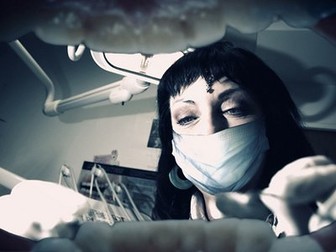Home
Focus Areas
About Us
The world's longest unbroken sea beach is located in the southernmost part of Bangladesh, and the plastic bags, straws, and cups that are tossed aside at cafes and parks end up everywhere, from the bellies of turtles to the shores of isolated islands.
It's no wonder, then, that nearly a million Rohingya refugees living in refugee camps in the area have decided to do something about it.
The International Organization for Migration and its partner, Dushtha Shasthya Kendra, started a waste collection volunteer group in Cox's Bazar in April, and since then, they've collected more than 24,000 pounds of plastic bags, as well as non-biodegradable waste such as plastic, polyethylene, and other packaging, and fed them into a machine that melts the small pieces of plastic into noodles, reports the IOM.
The plastic is then used to make learning materials and other products, such as letter blocks for children and slabs of pavement for children's latrines.
The recycling plant is part of the IOM's Water, Sanitation, and Hygiene (WASH) program, and it's part of a larger effort to reduce, reuse, and recycling of waste produced by refugees in the camp, which is the largest in the world, per the IOM.
Selected Grant News Headlines
A customized collection of grant news from foundations and the federal government from around the Web.
The UN's Science, Technology and Innovation Forum marks 10 years of bridging frontier knowledge and policy for sustainable development.World leaders will join pioneering scientists, innovators,...more
The DNC and DCCC kicked off the "Fight to Save Medicaid" month of action, as part of a new DNC distributed organizing program.The initiative will target four vulnerable House Republicans: Tom Barrett...more
News from Community Foundation of White County: White County Grants Announced.Community Cares Grants, funded by unrestricted donations to the Community Foundation, are designed to address a wide...more
Pennsylvania Auditor General Tim DeFoor in September announced an audit of the state's Motor Voter program.The audit's announcement was praised at the time by the Pennsylvania Freedom Caucus, a group...more
Volunteers gather at Rhea Valley Elementary each week to assemble bags of non-perishable meals and snacks for food-insecure students at three Washington County schools.The volunteer-run backpack...more
The Economist recently described China as "the world's innovation lab" China is a leader in advanced technologies such as AI, clean technologies, computer science and bioscience.The West has found it...more
The 2025 Partnering for Green Growth and the Global Goals 2030 (P4G) Vietnam Summit concluded with an urgent call to action.The Summit brought together over 800 leaders from governments, businesses,...more
In the 2021 election, the voter turnout for people 18-24 was 46.7 per cent, which was more than 7 per cent lower than the election before that.Elections Canada recognized that for democracy to remain...more
Youth in the U.S.and worldwide are more likely than their older counterparts to exhibit entrepreneurial potential, to be engaged in creative and innovative activities, and to be civically engaged if...more
Nonprofits face mounting pressures to retreat, stay quiet, or to narrow their scope.The answer may lie in civic engagement but before we act, it is helpful to understand what civic engagement...more
Civic Engagement News from...
Broomfield Community Foundation
Madison Community Foundation
Kansas Health Foundation
Cattaraugus Region Community Foundation
Lapeer County Community Foundation
Nebraska Community Foundation
Aspen Community Foundation
AARP Foundation
Maine Community Foundation
National Philanthropic Trust
Social Entrepreneurship
Spotlight
When it Comes to Social Enterprises, Failure is the Best Platform for Innovation

In the world of social enterprises, failure is a cringe-worthy moment nobody wants to talk about. But, social entrepreneurs can benefit from their failures.











